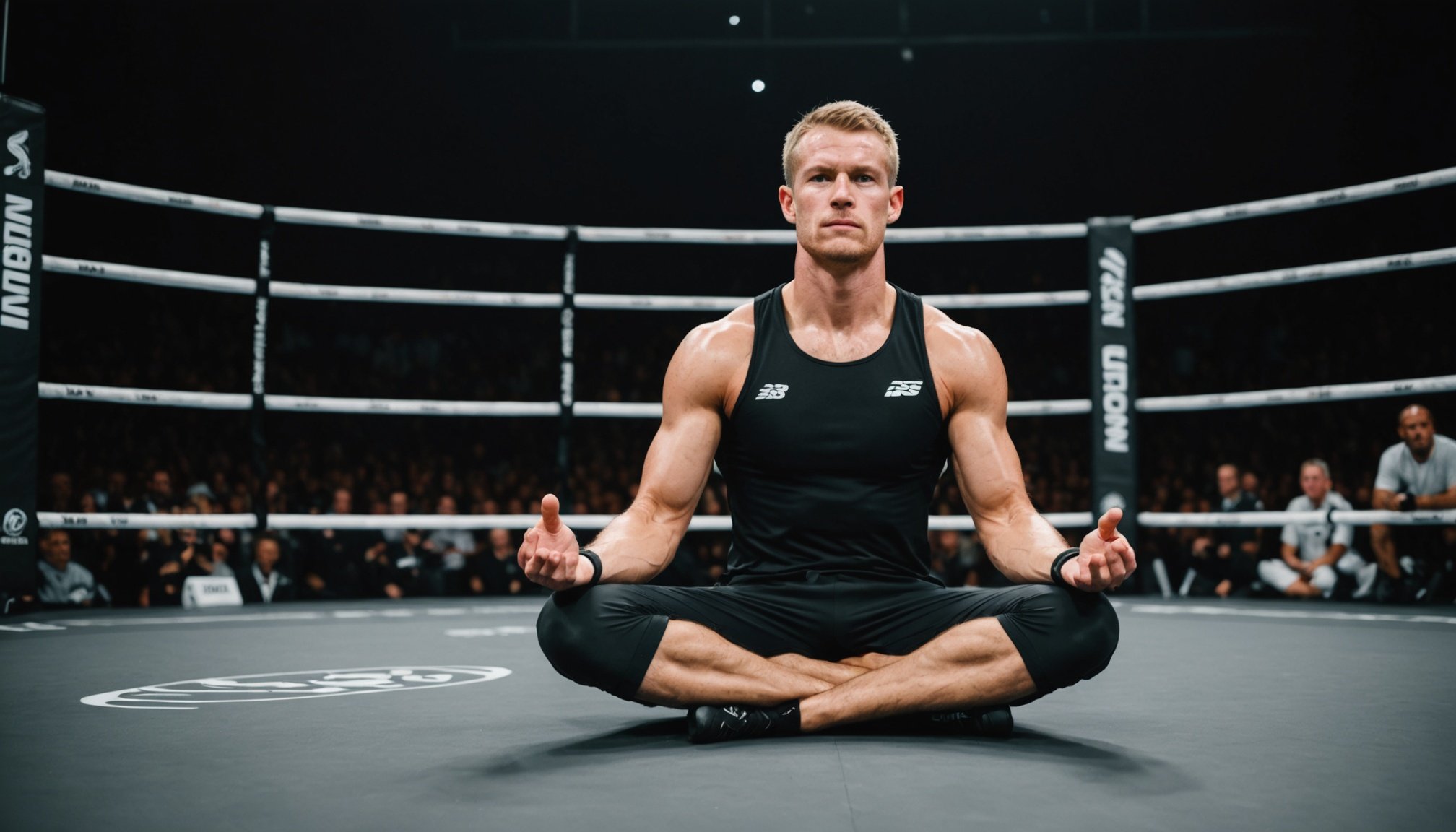The Importance of Mindfulness in Combat Sports
Mindfulness in sports has become increasingly significant, especially in high-pressure arenas like combat sports. At its core, mindfulness involves paying attention to the present moment with full awareness and without judgement. This practice has shown profound impacts on athletes’ performance and mental health.
Combat sports demand remarkable mental toughness. Here, mindfulness practices can serve as vital mental training, providing athletes the tools to manage stress effectively. By practicing mindfulness, fighters enhance their concentration, staying focused amid chaotic environments.
This might interest you : Mastering tactical brilliance: innovative strategies for uk kickboxers to boost match performance
Furthermore, the relationship between mindfulness and performance enhancement is noteworthy. Athletes often report improved physical performance as they become more in tune with their bodies. By cultivating mindfulness, fighters can refine their techniques, react more swiftly, and maintain poise under pressure.
- Benefits of mindfulness in combat sports include:
- Enhanced focus and clarity
- Better stress management
- Improved physical coordination
Mindfulness is not just a fleeting trend; it stands as a cornerstone of mental training in sports. Embracing mindfulness heralds not only psychological resilience but also optimises physical prowess, underscoring its essential role in combat sports.
In the same genre : Enhancing recovery in uk combat sports: the essential importance of heart rate variability
Practical Mindfulness Techniques for Athletes
Mindfulness is a powerful tool for athletes aiming to enhance focus and performance. Among the various mindfulness techniques, structured breathing, visualization, and meditation specifically cater to athletes’ needs.
Breathing Exercises
Controlled breathing significantly reduces anxiety and sharpens focus. Athletes can practice integrating these exercises seamlessly into their training routines. For instance, focusing on deep, rhythmic breaths during high-pressure moments helps maintain composure. Notably, Olympians have credited breathing techniques for maintaining calm during competitions.
Visualization Strategies
Visualization plays a crucial role in performance preparation. Athletes can cultivate effective imagery routines by imagining themselves succeeding in their sport. A step-by-step routine might involve creating a mental movie where they excel, reinforcing confidence and readiness. Case studies of elite athletes reveal how visualization improved their competition outcomes, showcasing its pivotal role in success.
Mindfulness Meditation
Different meditation practices are suitable for athletes, each offering unique benefits. Incorporating meditation into daily routines boosts focus and reduces stress. Athletes might practice mindfulness meditation post-training, which evidence suggests enhances mental resilience. Meditation’s effect on athletes’ stress levels and concentration highlights its potential as a crucial part of training regimens.
Case Studies of Successful UK Athletes Utilizing Mindfulness
In the realm of UK sports, mindfulness has emerged as a powerful tool among athletes, particularly in combat sports. Through compelling performance case studies, we gain insight into how this practice has become instrumental in their success. For example, Tom, a renowned boxer, attributes his championship victories to his daily mindfulness routines. By integrating meditation and breathing exercises, Tom reports a significant increase in focus and mental clarity during fights.
Another remarkable tale comes from Sarah, a mixed martial artist, whose athlete testimonials reveal a transformative impact of mindfulness on her career. After adopting mindfulness techniques, Sarah noted an improvement in her reaction time and decision-making, crucial in high-stakes scenarios. Her recent triumphs are a testament to how mindfulness can enhance competitive edge.
Interview snippets further underscore this point. David, a former rugby player turned coach, shares, “Mindfulness is not just about calm; it’s about harnessing mental strength under pressure.” Such quotes highlight a common theme in many UK sports success stories – that mental discipline is as critical as physical prowess. These athletes’ journeys underscore the profound effect of mindfulness on sports performance.
Expert Opinions on Mindfulness in Combat Sports
Mindfulness has become a focal point in sports psychology, with expert insights revealing its potential impact on combat sports. Sports psychologists emphasize that mindfulness practices can significantly enhance an athlete’s concentration and emotional control during competitions. This focus helps athletes manage stress and maintain peak performance under pressure.
Recent mindfulness research has explored its relationship with performance metrics in combat sports. Findings suggest that athletes who regularly engage in mindfulness exercises experience improved reaction times and decision-making abilities. Furthermore, mindfulness has been linked to lower incidences of performance anxiety, allowing athletes to execute their strategies more effectively.
For athletes interested in incorporating mindfulness, experts recommend starting with basic practices. Techniques such as controlled breathing and mental imagery can serve as effective entry points. As athletes become more comfortable with these practices, they may progress to more structured mindfulness programs tailored to their unique needs.
Finally, experts stress the importance of developing a consistent routine. Just as physical training requires regular practice, mindfulness should be embedded into daily training schedules to realize its full potential in enhancing athletic performance.
Benefits of Mindfulness in Overcoming Challenges in Combat Sports
Combat sports athletes often face mental hurdles such as anxiety, fear, and performance pressure. These challenges can significantly impact an athlete’s performance and overall mental resilience. Mindfulness has emerged as a powerful tool in overcoming such obstacles by promoting awareness and acceptance of the present moment.
Mindfulness strategies help combat anxiety by encouraging athletes to focus on their breathing and bodily sensations, which can ground them and reduce stress levels. By practicing mindfulness, athletes learn to acknowledge their fears without letting them influence their performance, fostering conflict resolution within their own minds. This mental resilience allows them to stay calm and composed, even in high-pressure situations.
The long-term benefits of integrating mindfulness practices into training regimens include enhanced athletic development and personal growth. Athletes who regularly engage in mindfulness often report improvements in concentration, emotional regulation, and overall well-being. These skills not only aid in overcoming challenges but also contribute to a more balanced and fulfilling athletic career. In summary, mindfulness is a valuable resource for combat sports athletes seeking to enhance their mental resilience and navigate the complexities of their sport effectively.











